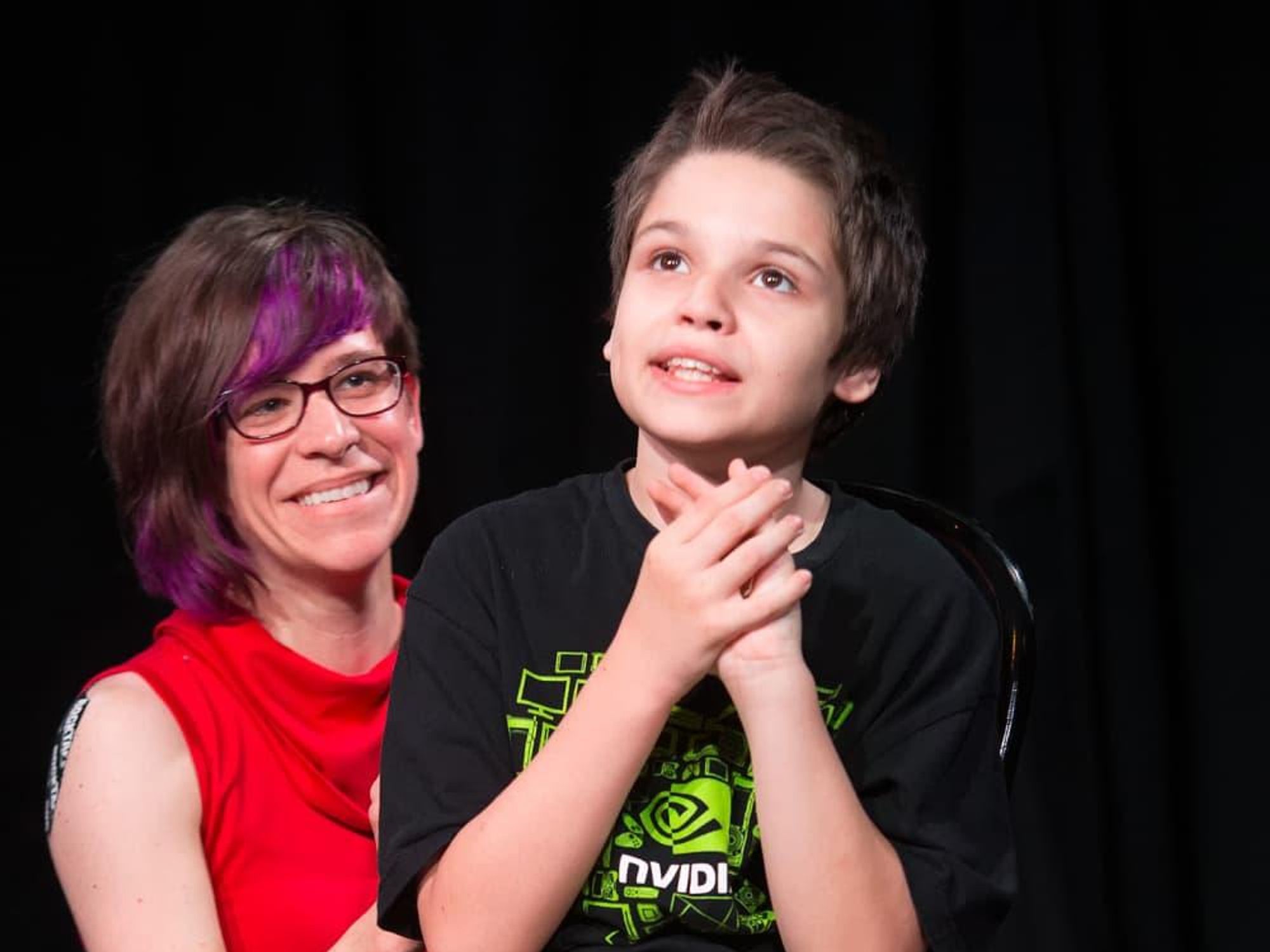Building Connections
Creative Austin program builds connections with autistic youth

According to the Center for Disease Control and Prevention, around 1 in 68 children in this country are born with a form of Asperger syndrome or autism. So often, these kids don't "fit" well in the molds that traditional society expects and dictates. While they can face difficulty with communicating, there is a common misconception that autistic youth lack empathy or don't want to connect with others. Improviser and licensed clinical social worker Lacy Alana has set out to dispel these myths.
"Realistically, these are some of the most empathetic, aware, and compassionate youth that I know," she says. Her groundbreaking work in Austin as director for Building Connections has shown results and is serving as the model for similar programs nationwide.
Alana's beginnings were tumultuous. After an abusive home life where, as a teenager, "the CPS became involved," she turned her pain into volunteer work for the Austin Children's Shelter. Following a brief and unfulfilling stint in the advertising world, she returned full time to the job she was meant for: working with at-risk families and autistic youth.
"I think I was definitely drawn to the field due to my own background. I have a heart for kids who are misunderstood, don't quite fit, who don't feel 'seen,'" she says.
Alana started taking improv classes while in graduate school. Like many people, she learned several lessons from improv: how to be in the moment, be present, be flexible, and be spontaneous.
"I recognized that a lot of these things paralleled what I was learning/doing in graduate school and helping kids learn to connect," Alana says.
Alana later worked at a residential treatment facility on a neurobehavioral unit for teenage boys. Most clients presented complex health, developmental, and social system challenges. Many were oppositional, aggressive, and disconnected from others.
She began integrating improv exercises and games into more traditional group and family therapy sessions. Clients who previously refused treatment began to demonstrate a willingness to participate and make progress, and their communication with others improved dramatically. Alana was inspired to explore the possibility of creating ongoing classes for neurodivergent youth, with the hope that others might benefit similarly.
A group of improvisers in Austin who were interested in similar work gathered to discuss the possibilities in early 2013. One of them was Jessica Arjet, a co-owner of downtown Austin's Hideout Theater, a hub for improv comedy. Arjet spoke with the Hideout team, and they were on board for an initial six-week trial improv class for pre-teens and teens on the autism spectrum.
And something wonderful happened. Alana recalls "seeing teens and young adults blossom and find increased creative expression and confidence."
Parents noticed a change, too. "They would respond by saying 'I had no idea my child could do that! This is amazing' or 'I always knew my child could do this, but no one ever gets to see this side of them,'" Alana says.
Alana became the director for what was later named Building Connections. The now permanent program has added myriad other offerings, including weekly classes at the Salvation Army for homeless children and families; workshops at OutYouth, an LGBTQ drop-in center; and weekly workshops for American Youthworks.
After hearing parent testimonials about the success of the program, other educators have reached out from across the country. Alana has written a 200-plus-page curriculum and is currently working on a book on the subject to "expand the skills and resources of professionals and educators".
